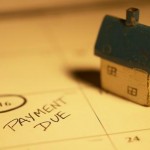Banks & Borrowers Need a Foreclosure Freeze

As additional evidence mounts that more than a few banks have made serious errors in dealing with foreclosures, it’s becoming more evident that a nationwide foreclosure freeze is in order. The uncertainties that a long-drawn out crisis would create, the manifest flaws in the current system for performing foreclosures, and the stakes for the economy all indicate that a time-limited but near-absolute freeze on new foreclosure activity will do more good than harm.
The current foreclosure crisis creates enormous uncertainty. Continuing along the current path raises the risk that the crisis may last longer than it needs to and could even cause a double-dip recession. Even if no complications arise and the former homeowner leaves voluntarily, it typically takes three months between a default judgment and the sheriff’s sale needed to complete a foreclosure. If the homeowner needs to be evicted—which is often the case—another two months or so gets added to the process. If the homeowner presents a defense, things can take even longer. Thus, if the process continues without banks taking a pause for a bottom-up review of the current foreclosure process, the problems may last for a few months.
The current system for foreclosures, in any case, seems terribly flawed. Errors, omissions and outright lies on the part of lenders are harmful in the same way that errors, omissions, and outright lies on the part of borrowers are. Banks rightly criticized many borrowers who lied or made mistakes on their loan applications. Given the stakes for borrowers being foreclosed upon, it’s terribly unfair—and breeds enormous disrespect for the law—to let banks get away with foreclosures in cases like these.
The stakes of a long-drawn out crisis are incredibly high. If there’s no reliable, workable system for foreclosing on houses—enforcing the terms of mortgages and home equity loans—then there’s a real chance that banks may not make such loans at all. Without the supply of credit, the economy could easily go from bad to much worse and the continuing slump in the housing market could turn into a true depression.
The best solution to a bad situation may be a temporary stand-down on foreclosure activity to let lenders get a foreclosure processing system into order. If he wants to fix the problem, President Obama should personally ask the heads of all of the major mortgage lenders to halt all foreclosure activity for a period of two weeks and order bottom-up reviews of their entire operations. This would stop the bleeding and make sure that no other bad foreclosures take place. At the same time, state Attorneys General—all of whom have joined a suit over the foreclosure issue--should be called together with the banks for a White House summit to nail out a settlement agreement that offers generous bank-paid compensation to people wronged in the foreclosure process in return for a shield from civil penalties and, to the extent possible, civil lawsuits. (The later provision may well require congressional action.) Of course, if officers of employees or banks or processing companies are found to have violated criminal statutes, no settlement should protect them from criminal penalties.
Bitter medicine? Yup. But the foreclosure paperwork crisis has serious risk of spiraling out of control, ending a fragile recovery, and turning a recession into a true depression. A short freeze on all foreclosures carries enormous risks. But they’re smaller than the risks of letting the economic bleeding continue.